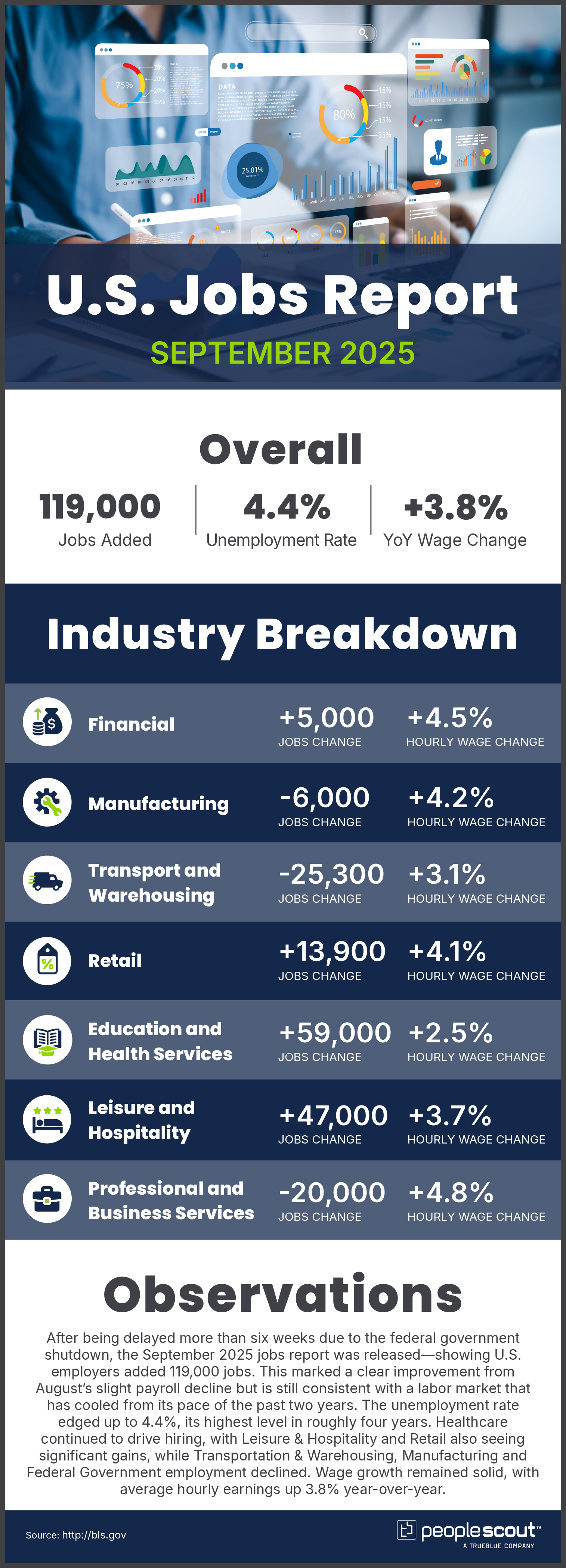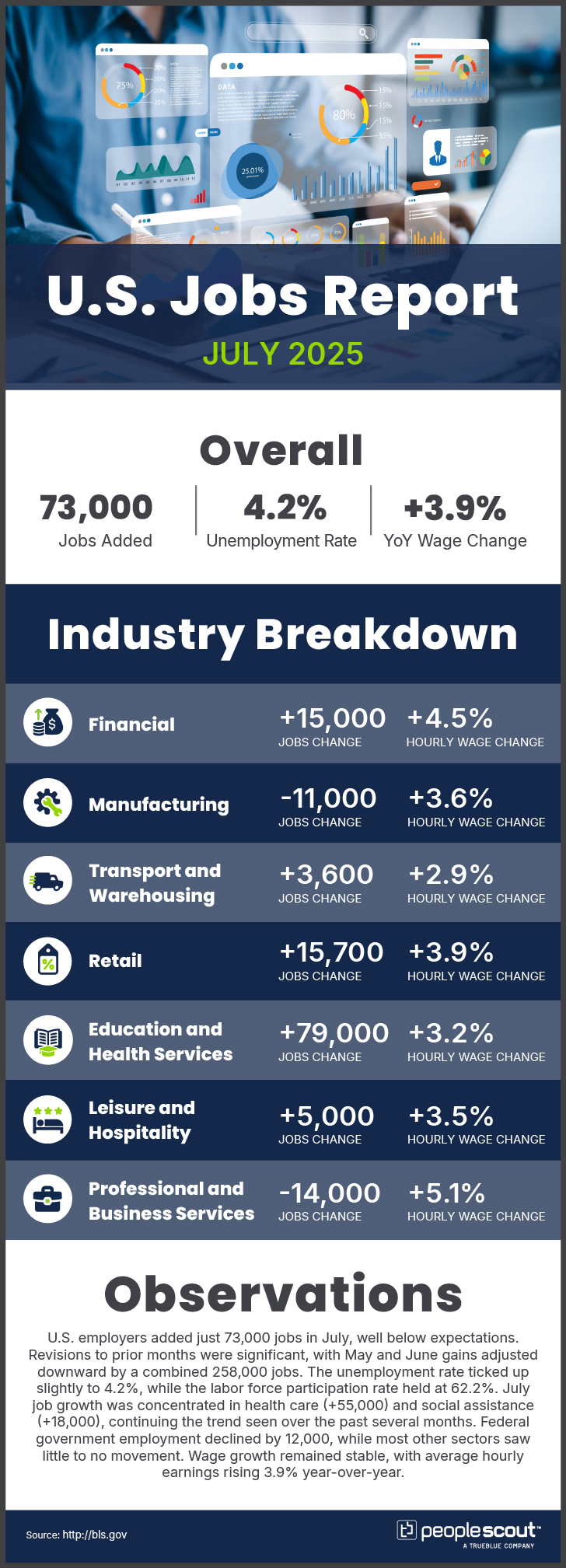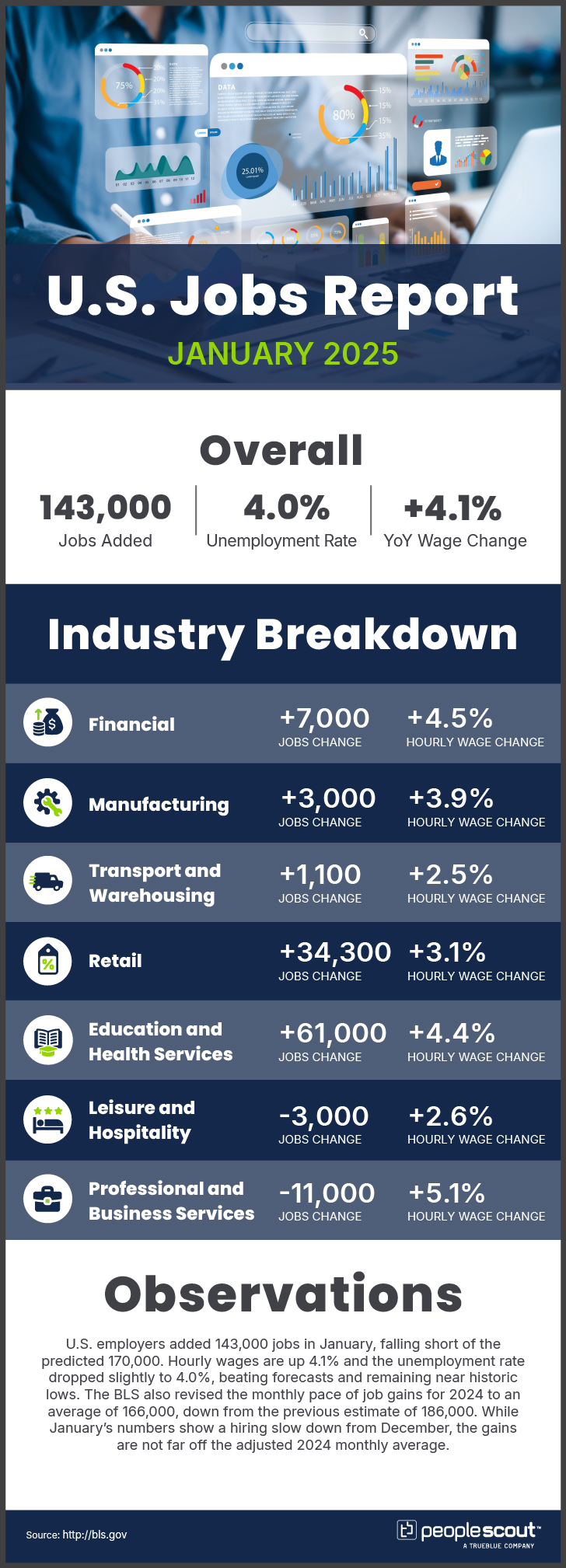The December 2025 jobs report offers the first clear look at the U.S. labor market in several months following data collection disruptions. U.S. employers added 50,000 jobs last month, slightly below expectations and marking a continuation of the subdued hiring pace that characterized 2025. The unemployment rate declined to 4.4% from a revised 4.5% in November, though this followed significant downward revisions to prior months. Healthcare and Leisure & Hospitality led job creation, while Retail and Manufacturing continued to contract.

The Numbers
50,000: U.S. employers added 64,000 jobs in December.
4.4%: The unemployment rate dropped to 4.4%.
3.8%: Wages rose 3.8% over the past year.
The Good
December’s payroll gains, while modest, suggest the labor market has avoided a sharp deterioration despite considerable headwinds throughout 2025. Unemployment ticked down to 4.4%, remaining historically low even as hiring slowed. Leisure & Hospitality led hiring with 47,000 new jobs, while Healthcare added 21,100 positions, continuing the sector’s trend of consistent employment growth. Year over year wage growth remained positive, with average hourly earnings rising 3.8% year-over-year, continuing to outpace inflation and supporting household purchasing power. Relatively low initial unemployment claims indicate businesses are taking a cautious but not panicked stance on workforce management.
The Bad
The broader context reveals notable labor market weakness. December’s 50,000 jobs added fell short of the modest forecast of 60,000 and represented a decline from November’s revised 56,000 gain. Revisions to October and November reduced previously reported employment by 76,000 jobs, with October’s payroll losses now estimated at 173,00. The average monthly job gain of approximately 49,000 in 2025 represents a significant deceleration from 2024’s 168,000 monthly pace, signaling a fundamental shift in employer hiring behavior. Sector-specific weakness persisted, with Retail shedding 25,000 jobs in December and Manufacturing posting its eighth consecutive month of declines. The data underscores a more cautious environment where hiring is increasingly selective and tied closely to business-critical needs.
The Unknown
Employers are navigating an unusually complex and uncertain environment as they enter 2026. Tariff policy remains a factor in workforce planning—particularly for manufacturers and importers. At the same time, companies are evaluating whether and when artificial intelligence adoption might reduce their need for additional headcount. Anticipated tax cuts and the potential for lower borrowing costs could boost hiring in 2026, but the timing and magnitude of any impact remain unclear. Whether these dynamics translate into further labor market softening—or stabilize as economic conditions evolve—will be an important watchpoint for employers entering 2026.
Conclusion
The December jobs report closes out a year defined by slowing momentum in the U.S. labor market. While unemployment remains relatively low, hiring activity has clearly cooled from the pace seen in recent years. For employers, success in 2026 will likely depend more on strategic workforce planning—aligning talent investments to critical roles, improving hiring efficiency and offering value propositions that resonate with a more cautious and stability-focused workforce.











